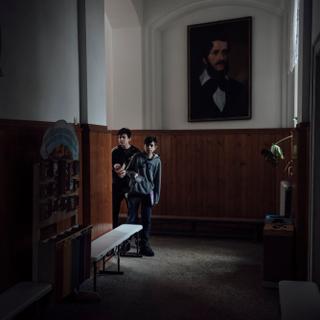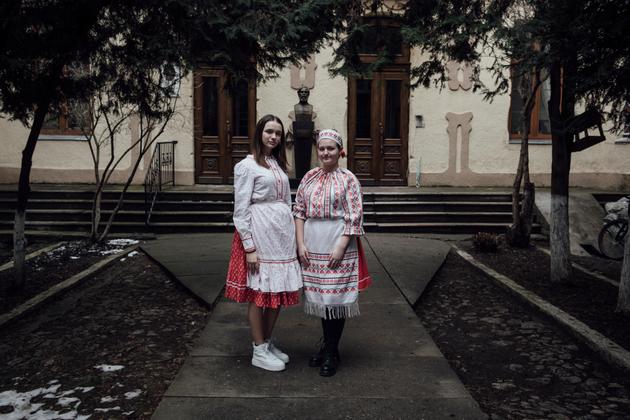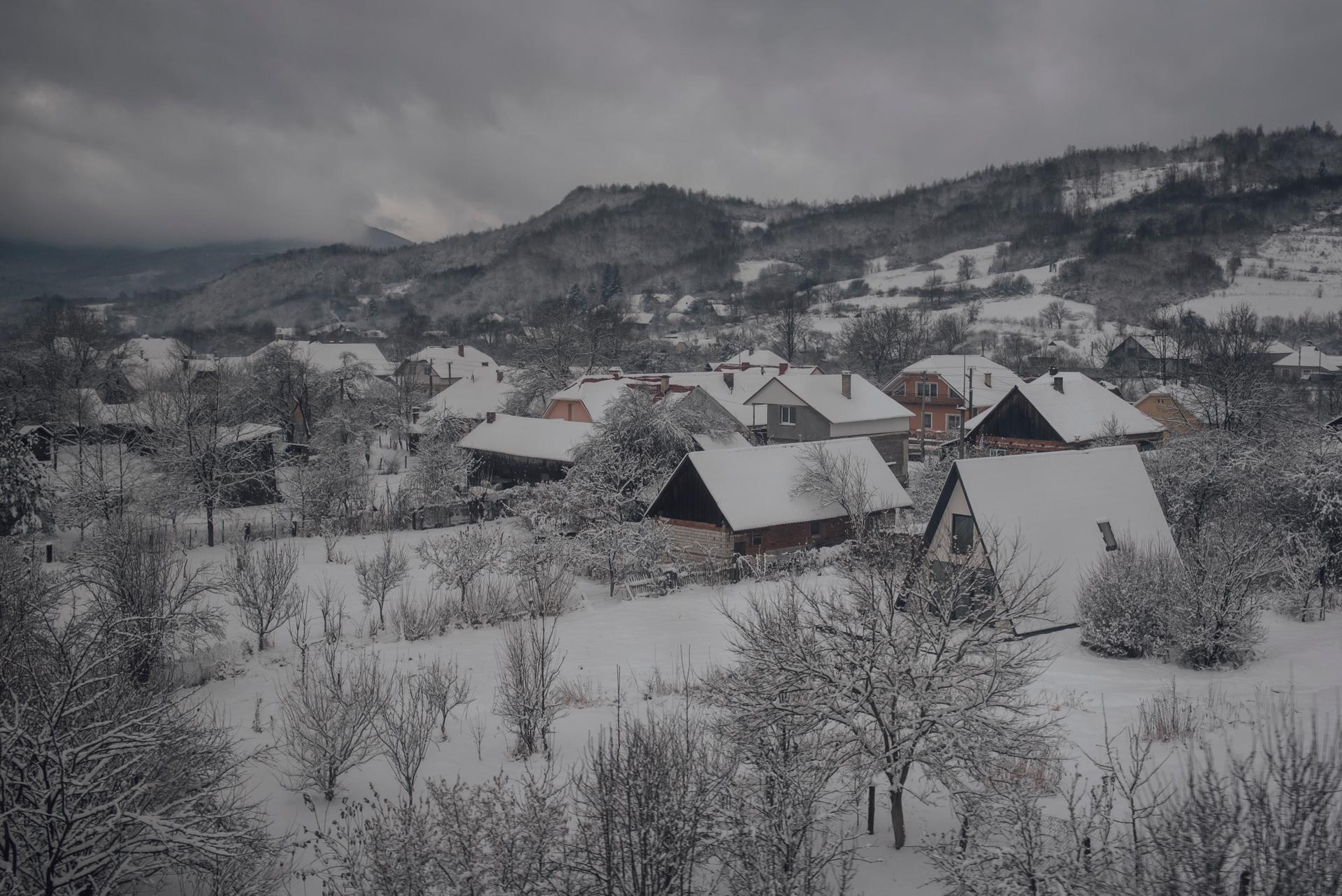


Ukraine's Hungarian minority, caught between defending its identity and fear of Orban's policies
FeatureThe Hungarian prime minister criticizes Kyiv for not allowing the few thousand Hungarians in Ukraine to express themselves in their language. While few dare to speak out, most do not agree with this allegation which complicates their relationship with Ukraine.
The drawings on the walls are like those you'd find in any Ukrainian school. They depict soldiers as well as blue and yellow Ukrainian flags alongside the date, December 6, National Armed Forces Day. The only difference with other schools around the country is that when the recess bell rings, the six-to-17-year-old students rushing into the hallways speak only Hungarian. The lessons given in the classrooms of Lajos Kossuth School in Berehove, a small town in southwest Ukraine, are likewise taught in the language of the neighboring country.
This form of education is one of the unique aspects of Transcarpathia, a multi-ethnic region wedged between Hungary, Slovakia, Poland and Romania, the cradle of Ukraine's Hungarian community. While the last official census in 2001 counted some 150,000 people, more recent estimates have suggested that the population of this minority is now half that.
At the state school named for the hero of the 1848 Hungarian Revolution, Ukrainian is taught as a foreign language. According to headmistress Emese Zseltvai-Vezsdel, this is sufficient to ensure that pupils have a decent level of Ukrainian by the end of their schooling. "I want young people to speak Ukrainian," said the chemistry and biology teacher on Friday, January 26. "But, for us, it's very important that they study in the Hungarian language."


The issue of education in Hungarian, and more generally its use in administrative settings and across the region, has been at the core of tensions between Budapest and Kyiv since 2017. The conflict has stemmed from a Ukrainian law passed by the government of then president Petro Poroshenko making teaching the Ukrainian language a requirement in secondary schools. Ukraine intended the law to help reinforce its national identity three years after the Russian annexation of Crimea and the outbreak of war in the east of the country in 2014. Although primarily aimed at Russian speakers, the law by extension has affected all linguistic minorities in Ukraine.
Since the start of the Russian invasion, however, Hungarian Prime Minister Viktor Orban has consistently used the argument of Hungarian minority rights to justify his opposition to European support for Ukraine. In December 2023, on the eve of a European summit that was to address opening negotiations for Ukraine's accession to the European Union (EU), the Ukrainian Parliament finally amended its minority laws to comply with EU requirements. While representatives of Ukraine's Hungarian community have taken a positive view of the new law, Budapest has not stopped its criticism of Kyiv.
You have 65% of this article left to read. The rest is for subscribers only.
